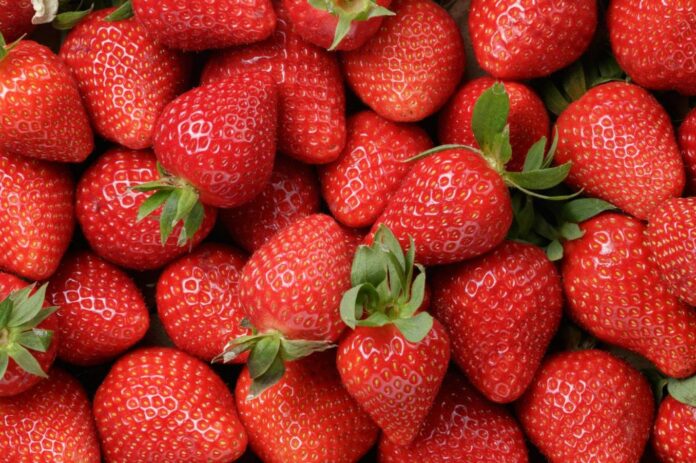Strawberries Costing Us More Than We Think – New Study Reveals
We tend to think that strawberries are simply things to be enjoyed, but this new study shows that even something as delicious as fresh strawberries can come with a heavy cost.
A recent study has revealed a concerning issue associated with the cultivation of strawberries in California: the use of plastic mulch has led to the release of significant amounts of plastic fragments into the soil, posing a threat to its quality and raising doubts about the sustainability of this practice. The implications of this research extend beyond California, with potential implications for plastic usage in agriculture worldwide.
During the Goldschmidt geochemistry conference in Lyon, Dr. Ekta Tiwari, a postdoctoral researcher from the Sistla group at California Polytechnic State University, presented the findings. Dr. Tiwari noted that a substantial amount of macroplastic material, referring to plastic particles larger than 5mm, was being shed from the plastic mulch used in strawberry production. These fragments have the potential to persist in the soil for several decades or even longer.
Polyethylene and other plastics have increasingly found their way into agriculture, including the use of plastic mulch films in fields and polytunnels. These mulch films offer various benefits, such as weed and pathogen control, reduction of water evaporation, and prevention of soil splashing onto the fruit—particularly crucial for strawberries. Typically, the mulch is applied in rows and removed after the crop’s seasonal production. However, despite farmers’ efforts to ensure thorough removal, plastic fragments often remain and adhere to the soil. Consequently, the researchers observed the accumulation of plastic fragments in agricultural soils, even in well-managed fields, following years of annual plastic mulch application and removal. The study focused on identifying macroplastics, which are plastic pieces exceeding 5mm in size.
Dr. Tiwari explained,
“We carried out a systematic survey of strawberry fields after the seasonal removal of these plastic film. We found that the distribution was fairly uniform. On field surfaces alone, we found up to 213,500 macroplastic particles per hectare. That doesn’t include subsurface particles, which we did not survey. In addition, we are currently analysing the same soil samples for microplastics, which are smaller particles, less than 5mm across; these are not yet included in our findings,”
Most of the particles identified in the study were polyethylene, confirmed through Fourier transform infrared spectroscopy analysis. Preliminary findings indicated that higher levels of macroplastic pollution corresponded to decreased soil moisture content, microbial respiration, and availability of plant-nutrient nitrogen.
Dr. Tiwari expressed concern, stating,
“The plastic mulch provides benefits, but at the expense of long-term soil quality. It’s difficult and expensive to remove these particles from the soil, so once they are there they can stay there indefinitely.”
We tend to think that strawberries are simply things to be enjoyed, but this shows that even something as delicious as fresh strawberries can come with a cost to the environment. We are working with the manufacturers to see if we can mitigate these costs.”
Although alternatives to polyethylene mulches, such as biodegradable plastics or natural mulches like straw, exist, they come with additional economic costs. Furthermore, the use of plastics in agriculture is increasingly subject to regulations. Notably, the European Union has provided information on agricultural plastics in its report.
Professor Sean Schaeffer from the Department of Biosystems Engineering & Soil Science at the University of Tennessee commented on the issue, highlighting the significance of plastics, particularly plastic mulches, in maintaining agricultural productivity.
“Plastics, and plastic mulches in particular, are vital to maintain agricultural production. They are used for various purposes including soil moisture retention, soil warming/cooling, as well as weed or pest control. Agricultural plastic use is increasing worldwide, with California being the largest user of agricultural plastic in the US. Research on the fate and transport of plastics in soil and water systems is relatively recent, so studies like this are vital to increasing our understanding of the scope the plastic problem. We currently know relatively little about the distribution, size, and types of plastic in soils in the largest states, both in land area and in agricultural production.”
It is important to note that this research is ongoing and has not yet undergone peer review. The researchers are currently evaluating the level of microplastic pollution, involving particles smaller than 5mm, left behind by plastic mulches.
This study serves as a baseline assessment of plastic pollution in the U.S. agricultural system, aiding the improvement of land management practices by investigating the biogeochemical consequences of plastic accumulation in agricultural soils.
Image Credit: Shutterstock
